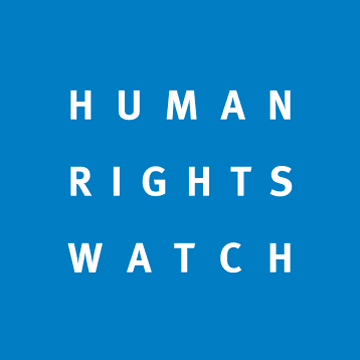Tanzania’s Pre-Election Crackdown Raises Alarming Concerns for Democracy
Since mid-2024, Tanzanian authorities have engaged in a systematic campaign against opposition figures, activists, and critical voices.

- Country:
- Tanzania
Tanzania is heading into its October 29, 2025, general elections under a cloud of political repression, abductions, and media restrictions that have raised grave concerns about whether the polls will be free, fair, or credible. Human Rights Watch (HRW) and other watchdogs have sounded the alarm, documenting widespread abuses by state authorities and unidentified assailants, as well as an electoral commission whose lack of independence further undermines public trust.
Mounting Political Repression Ahead of Elections
Since mid-2024, Tanzanian authorities have engaged in a systematic campaign against opposition figures, activists, and critical voices. Human Rights Watch reported that activists, lawyers, journalists, and religious leaders have faced harassment, assault, abductions, torture, and fabricated charges. Victims and civil society leaders describe a climate of fear where dissent can cost lives.
A religious leader assaulted for his activism said:
“The right to life of people who have different opinions from the government is endangered. People should be able to criticize the government. It should not endanger their lives.”
The crackdown has especially targeted members of Chadema, the largest opposition party, and ACT-Wazalendo, with party officials facing arrest, bans, and disqualification from standing in elections.
Cases of Harassment, Assault, and Disappearance
Documented abuses reveal a disturbing pattern:
-
Opposition activist Mpaluka Nyagali (Mdude) was abducted from his home in Mbeya in May 2025, with his whereabouts still unknown. Police deny involvement.
-
Government critic Japhet Matarra was beaten unconscious in June 2025 and later attacked again in hospital by men dressed as doctors. His jaw remains injured, impairing his speech.
-
Catholic priest Father Charles Kitima, a vocal government critic, was attacked on April 30, 2025, just hours after calling for reforms ahead of elections.
-
Human rights lawyer Edgar Mwakabela (Sativa) was stripped, beaten, and abandoned in Katavi National Park by police after being arrested in Dar es Salaam in June 2024.
-
Chadema member Ali Kibao was abducted in September 2024 and found dead the next day, severely beaten and doused with acid. No arrests have followed.
-
Prominent journalist Maria Sarungi Tsehai was abducted in January 2025 in Nairobi, where she was interrogated about her social media accounts.
Religious leaders have also been silenced. The Home Affairs Ministry deregistered Bishop Josephat Gwajima’s Pentecostal church after he criticized the government over abductions. Other clergy critical of the ruling party have faced harassment and physical assault.
Electoral Commission Lacks Independence
The credibility of Tanzania’s Independent National Electoral Commission (INEC) is under serious question. Despite its name, the commission is appointed by the president, and its decisions cannot be challenged in court.
Key decisions have further eroded trust:
-
Chadema was banned from contesting elections until 2030 after refusing to sign a controversial electoral code of conduct.
-
The nomination of ACT-Wazalendo’s presidential candidate Luhaga Mpina was blocked, despite a High Court ruling ordering his candidacy to be accepted. Days later, INEC disqualified him again, following an objection from the attorney general.
Article 74 of Tanzania’s constitution gives the president sweeping powers over the commission, and recent reforms have failed to address these fundamental flaws. International observers, including the African Court on Human and Peoples’ Rights, have warned that such structural issues undermine electoral fairness.
Restrictions in Zanzibar’s Voter Registration
On the semi-autonomous island of Zanzibar, opposition members have accused authorities of denying thousands of voters access to identity cards required for registration. Local officials allegedly withhold IDs from families known to support opposition parties, effectively disenfranchising them.
A human rights defender said:
“If the system perceives you as someone voting for the opposition, you do not get a Zanzibari ID.”
This selective denial of registration could tilt the balance in one of the country’s most politically contested regions.
Media Repression and Information Control
Tanzania’s government has cracked down on independent media and online platforms, further shrinking civic space.
-
In October 2024, the Communications Authority suspended three leading newspapers for publishing material about abductions.
-
In May 2025, over 80,000 websites, social media accounts, and blogs were shut down for alleged “unethical content.”
-
Access to X (formerly Twitter), Telegram, and Clubhouse has been blocked.
-
JamiiForums, a leading whistleblowing platform, was suspended for 90 days for “misleading the public” and “disrespecting the president.”
Journalists report constant threats, censorship orders, and informal directives to remove content critical of the government. Some media owners have fled the country after death threats.
International Reactions and Democratic Concerns
The African Commission on Human and Peoples’ Rights, UN experts, and the European Parliament have all raised concerns about Tanzania’s deteriorating human rights environment. They highlight enforced disappearances, torture, arbitrary arrests, restrictions on peaceful assembly, and the silencing of the press.
Despite pledges by President Samia Suluhu Hassan at the UN Human Rights Council in June 2025 to uphold democratic principles, her government has not implemented meaningful reforms. Instead, repression has deepened, and opposition candidates have been systematically excluded.
A Shrinking Democratic Space
Human Rights Watch warns that with opposition leaders barred, activists silenced, and media restricted, the October 2025 elections risk being neither free nor fair. Nomathamsanqa Masiko-Mpaka, Africa researcher at HRW, urged urgent reforms:
“The government needs to urgently stop repressing the political opposition, impartially investigate attacks and abductions of human rights activists, opposition members, lawyers and religious leaders, and ensure the electoral commission’s independence.”
Unless urgent measures are taken, Tanzania’s elections may serve only to reinforce the dominance of the ruling Chama Cha Mapinduzi (CCM), while further closing democratic space in one of East Africa’s most influential nations.
ALSO READ
Kerala's Fiscal Face-Off: Government vs. Opposition Over Financial Crisis Allegations
Vijay flays DMK, reiterates opposition to BJP, slams AIADMK-BJP alliance as 'opportunistic'.
Kerala Opposition Criticizes Inaction on Threat to Rahul Gandhi
Amit Shah Accuses Opposition of Favoring Infiltrators Ahead of Bihar Polls
Punjab CM Slams Opposition Amidst Flood Crisis










